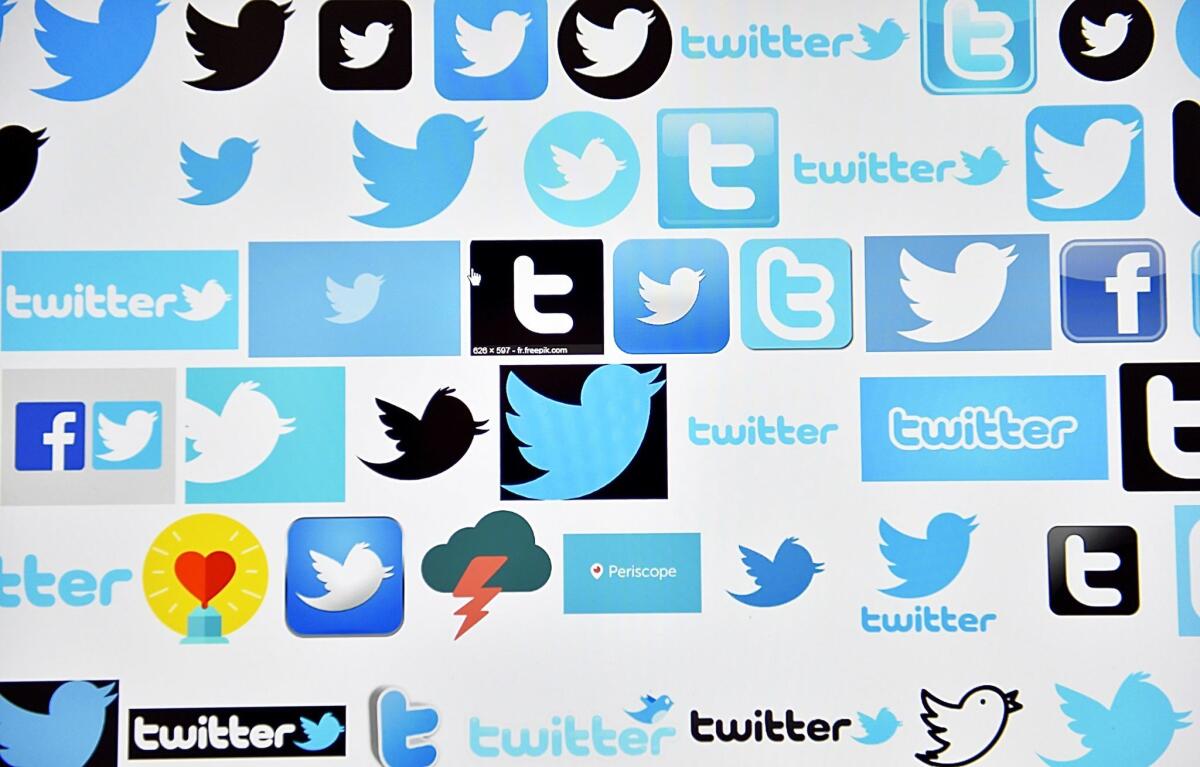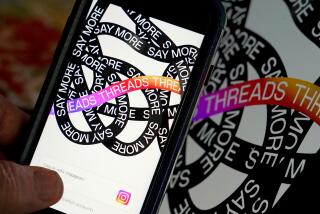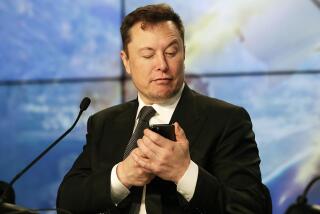Twitter bans all political ads, in sharp contrast to Facebook

Twitter Inc. founder and Chief Executive Jack Dorsey announced Wednesday his social media company — in pointed contrast to Facebook Inc. — would stop running political advertising worldwide.
In a long thread of Twitter messages, he wrote that online political ads presented “entirely new challenges to civic discourse,” including “machine learning-based optimization of messaging and micro-targeting, unchecked misleading information, and deep fakes. All at increasing velocity, sophistication, and overwhelming scale.”
The announcement comes as Facebook CEO Mark Zuckerberg faces scrutiny over his company’s stated position of allowing political advertising on its platform without any form of fact-checking, as well as allowing political candidates impunity from the normal mechanisms of content moderation on ads on the social media platform.
Twitter, a favorite platform of President Trump, updated its policies in June to say it would label — but not remove — tweets from government officials that broke its bullying and harassment rules. Twitter’s rule applies to what it calls verified leaders, representatives and candidates with more than 100,000 followers on the platform, though it says there are cases, such as “direct threats of violence or calls to commit violence against an individual,” in which it might take down an official’s tweet.
Dorsey said Wednesday that the language of the official Twitter policy reflecting the ban on political ads would be made public by Nov. 15 and would be enforced starting Nov. 22.
In an indirect response to Zuckerberg, whose arguments in favor of allowing political advertising on Facebook have emphasized the importance of free speech and expression in the political discourse, Dorsey ended his thread by saying: “This isn’t about free expression. This is about paying for reach. And paying to increase the reach of political speech has significant ramifications that today’s democratic infrastructure may not be prepared to handle. It’s worth stepping back in order to address.”
The new policy is unlikely to have much effect on Twitter’s bottom line. The company said last week that political ads brought in less than $3 million during the 2018 midterm election cycle, an amount that represents less than 0.2% of its 2018 U.S. revenue.
On Facebook’s earnings call Wednesday afternoon, about an hour after Dorsey’s announcement, Zuckerberg said he expected ads from politicians to constitute less than 0.5% of Facebook’s revenue next year. According to the company’s Ad Library Report, a transparency tool that tracks political spending on the platform, customers have spent more than $857 million on Facebook ads about social issues, elections or politics in the United States and Canada since May 2018, representing nearly 2% of the company’s ad revenue in the region.
Zuckerberg reiterated Wednesday that Facebook’s policies on political advertising were not motivated by financial incentives. He added that allowing political candidates to buy ads regardless of whether the ads are truthful follows in the spirit of Federal Communications Commission regulations on political advertising.
In broad strokes, those regulations require radio and television stations licensed by the FCC — but not online platforms such as Facebook or Twitter — to run advertisements directly paid for by political candidates regardless of their content.
The issue gained prominence in September when Twitter, along with Facebook and Google, refused to remove a misleading video ad from Trump’s campaign that targeted former Vice President Joe Biden, a leading Democratic presidential candidate.
In response, Democratic Sen. Elizabeth Warren, another presidential hopeful, ran an ad on Facebook taking aim at Zuckerberg. The ad falsely claimed that Zuckerberg endorsed Trump for reelection, acknowledging the deliberate falsehood as necessary to make a point.
Critics have called on Facebook to ban all political ads. This includes CNN chief Jeff Zucker, who recently called the policy of allowing lies ludicrous and advised the social media giant to sit out the 2020 election until it could figure out something better.







